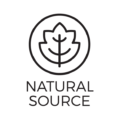- Getting Started
-
by k.mammasis
The Best of Natural Nootropics
Omega-3 fatty acids, which are found in algae, fatty fish, nuts, and seeds, are often considered to be a type of nootropic due to their potential benefits for brain health. Research suggests that omega-3 fatty acids, particularly the types known as EPA and DHA, may play an important role in brain function, including memory, mood regulation, and cognitive performance. Omega-3 fatty acids are believed to improve brain health by reducing inflammation, supporting the development and maintenance of brain cell membranes, and promoting the growth of new brain cells.
Studies have suggested that omega-3 fatty acid supplementation may be beneficial for people with cognitive impairment, such as those with mild cognitive impairment and early-stage Alzheimer’s disease. Omega-3 supplementation may also help improve mood in people with depression and anxiety. While more research is needed to fully understand the potential benefits of omega-3 fatty acids for brain health, including their effects on healthy individuals, it is generally considered safe to consume omega-3s through functional foods or supplements.
Intelligent Foods for the Brain
Research suggests that omega-3 fatty acids, particularly the types known as EPA and DHA, may play an important role in brain function, including memory, mood regulation, and cognitive performance. Omega-3 fatty acids are believed to improve brain health by reducing inflammation, supporting the development and maintenance of brain cell membranes, and promoting the growth of new brain cells.
Studies have also suggested that omega-3 fatty acid supplementation may be beneficial for people with cognitive impairment, such as those with mild cognitive impairment and early-stage Alzheimer’s disease. Omega-3 supplementation may also help improve mood in people with depression and anxiety. There is no better of receiving Omega-3s to food.














 MILESTONE® Food for your Genes
MILESTONE® Food for your Genes